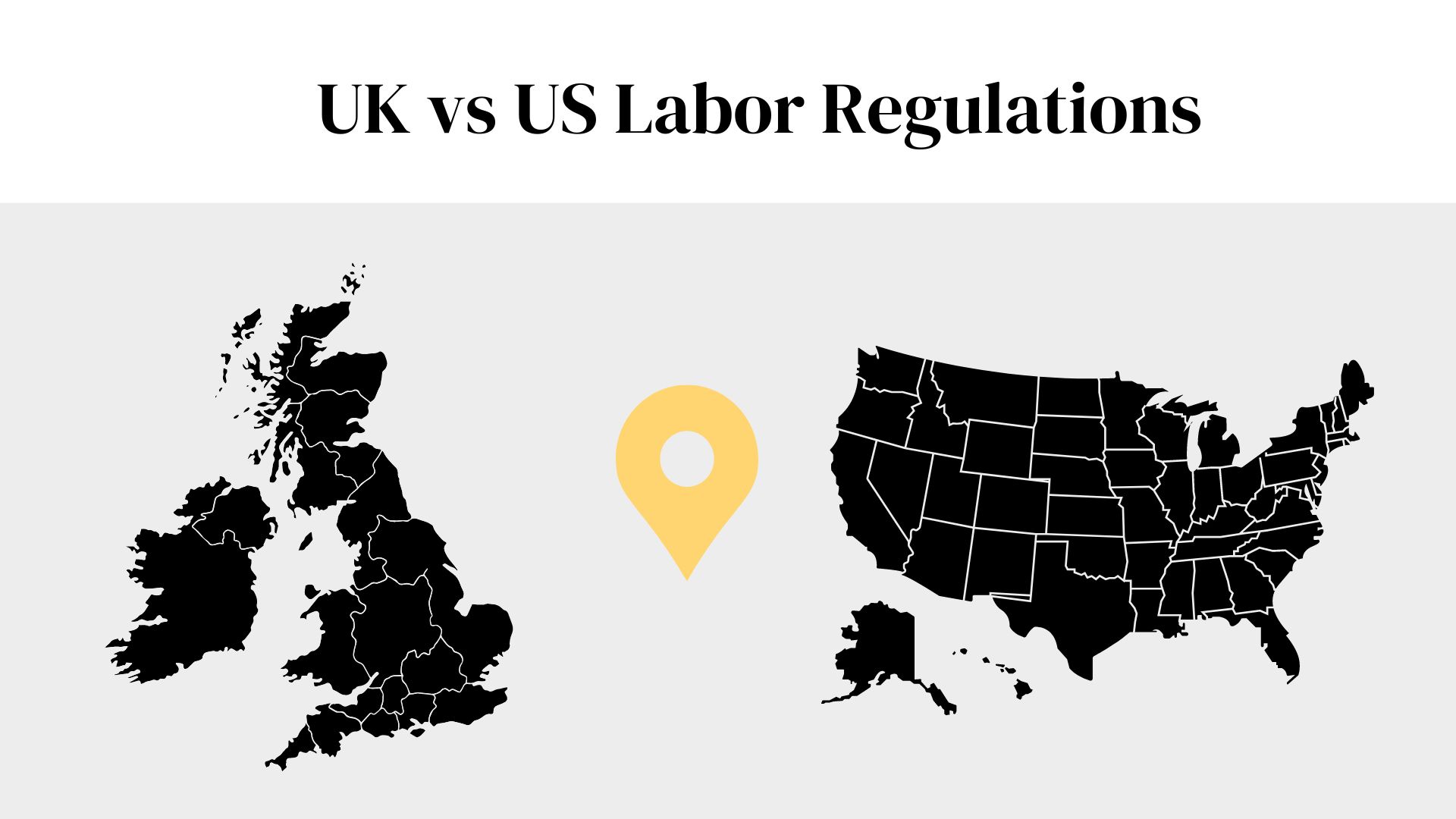We previously covered some of the main differences in employment regulations between the UK and the US. In this blog post, we’ll look at three important legal considerations and examine how they can significantly impact your recruitment strategy.
You can read part one and part two on our blog.
Pay Frequency in the US vs the UK
There are various pay frequency requirements dictated by federal, state, and local laws throughout the US. Typically, employees in the US are paid every other week or every week. While every business has its own preference, more employers are opting to pay on a weekly basis to keep up with changing laws and to remain compliant.
Depending on the role, workers in the UK are paid either weekly or monthly, on the same date or day of the month. For example, some companies pay their employees on the last Thursday of the month, which may fall on a different date.
Hourly vs Day Rate in the US vs the UK
Hourly rates are the most common payment method in the US for contract labor. Due to the various federal, state, and local laws, hourly rates allow employers to stay compliant with various employment laws.
Day rates are more common in the UK, however some industries where a more granular measure of time is required may prefer hourly rates.
Sick Leave and Pay in the US vs the UK
The US requires unpaid leave for serious illnesses through the Family and Medical Leave Act (FMLA). However, there is no federally mandated paid sick leave law, instead regulations vary by state. Some cities also have their own laws that impact paid sick leave for employees. San Francisco, for example, requires employers to provide paid sick leave to all employees (including temporary and part-time employees) under the San Francisco Paid Sick Leave Ordinance (PSLO). General information on laws and classification can be found on the U.S. Office of Personnel Management website.
In the UK, there are two types of sick pay: company sick pay (also called contractual or occupational sick pay) and Statutory Sick Pay. If the company has its own sick pay policy, employees receive their normal pay during any period that they are off work due to illness, up to a set number of weeks. Employees can self-certify for up to 7 days of illness, while anything beyond that would require a ‘fit note’ (statement of fitness for work).
Companies that don’t have their own policy are required to pay Statutory Sick Pay (SSP) to their employees for up to 28 weeks, which is the same across the whole of the UK.
If you work with an EOR, they can take care of any complexities that may arise as a result of the differences in employment regulations in the US vs the UK. Get in touch today.
